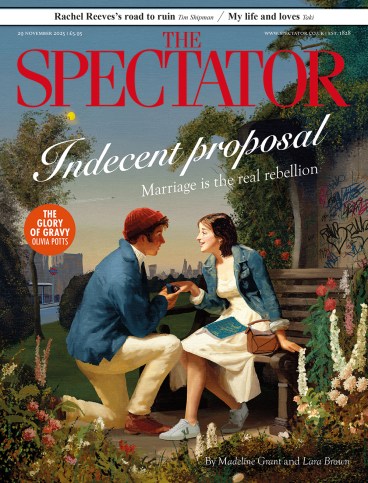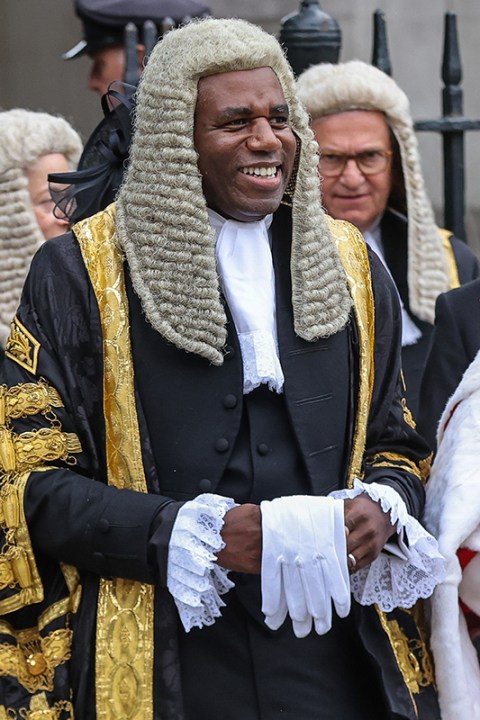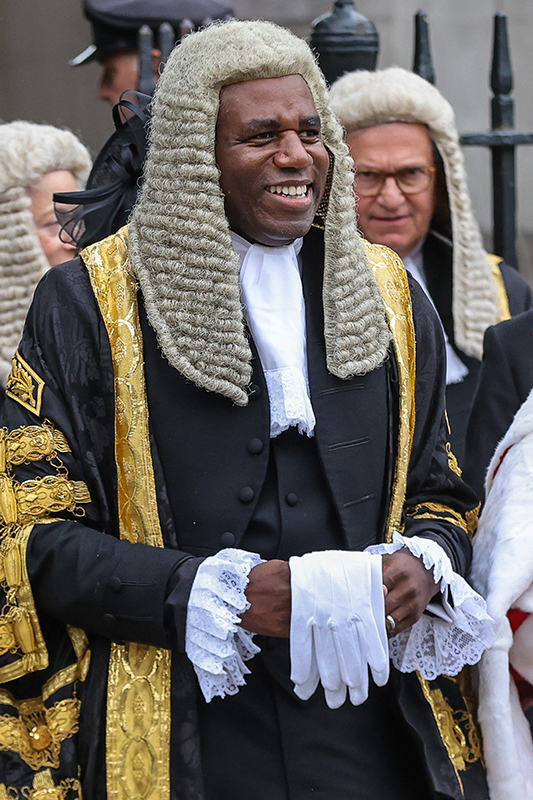
Why are jury trials so precious? According to one prominent alumnus of Harvard Law School, who was writing in protest at proposals to drop them during the Covid pandemic, they are ‘a fundamental part of our democratic settlement’. In a separate report, the author noted that, by deliberating ‘through open discussion’, juries deter and expose ‘prejudice or unintended bias’ since ‘judgements must be justified to others’. They added: ‘Successive studies have shown that juries deliver equitable results, regardless of the ethnic make-up of the jury or defendant.’ Trials without juries, they concluded in 2020, are thus ‘a bad idea’.
That astute legal mastermind? One David Lammy, recently elevated to become our Justice Secretary, Lord Chancellor and Deputy Prime Minister.
A memo has emerged from Lammy suggesting that juries are set to be discarded for all cases, excepting alleged rape, murder, manslaughter and other ‘public interest’ charges. Instead, most offences with a likely sentence under five years – including the majority of assaults, burglaries and sexual offences – would be heard by a judge alone. Lammy’s proposals go far beyond those of Sir Brian Leveson in his recent review. The former Court of Appeals judge recommended creating an ‘intermediate court’, in which a judge would sit with two lay magistrates.
This uprooting of our legal system – found nowhere in Labour’s manifesto – is justified, according to Lammy, to cut a court backlog rising towards 80,000 in England and Wales. There was ‘no right’ to jury trials, he suggested, only to a ‘fair’ trial.
But who decides what is ‘fair’? A survey from 2011 suggests the public considers a jury trial a fundamental right (second only to universal healthcare). After 810 years, the principle established by Magna Carta’s 39th clause – that ‘no free man shall be seized or imprisoned… except by the lawful judgement of his peers or by the law of the land’ – will be discarded. Lone judges will not have held so much power in England since the Star Chamber’s abolition.
There is ‘no right’ to jury trials, only to a ‘fair’ trial. But who decides what is ‘fair’?
The government is pleading poverty. Yet as Leveson’s report admitted, since juries decide around 1 per cent of all criminal cases, scrapping them will have only a marginal impact on the backlog and save as little as £31 million – around 0.2 per cent of the Ministry of Justice’s budget.
Doing away with jury trials has been proposed to ministers for decades; all have backed away, aware that it would hobble a legal system globally revered. Yet this government – staffed so conspicuously by ex-lawyers – sees no trouble in paving the way for the abolition of jury trials. But removing juries would be wrong in principle and ineffective in practice.
For why, Lammy need look no further than his own words. Our first black Deputy Prime Minister is usually swift to invoke identity politics. Yet he seems to have forgotten the 2017 review he authored, highlighting how juries smooth out ethnic biases. While judges are disproportionately white, male and privately educated, juries provide a better cross-section of society, encompassing anyone between the age of 18 and 75 not imprisoned, insane, a royal, or a mix of all three. Anyone familiar with 12 Angry Men will know the virtue of a group’s sagacity over one man’s prejudices.
Lammy would empower the judiciary just when its stock is at its lowest. A recent Merlin Strategy poll found that two-thirds of people believe that the criminal justice system has become over-politicised, while about the same proportion think judges sometimes make decisions in line with their personal views rather than the law. Seven in ten believe that judges put criminals’ rights before those of victims.
One does not need to declare judges ‘enemies of the people’ to be sceptical of a class whose meddling in pay disputes has bankrupted Birmingham, who proved unwilling to deport a foreign criminal over his son’s aversion to Albanian chicken nuggets, and who sentence otherwise law-abiding citizens to years in prison for over-hasty posts on social media.
No government can avoid the courts crisis. The backlog is projected to surpass 100,000 by 2028, leaving justice delayed for far too long for far too many victims and defendants. The number of sitting days was capped at 110,000 this year. But according to Baroness Carr, the Lady Chief Justice, capacity existed for at least 113,000. Funding must be made available to prevent crumbling courtrooms, absent judges and insufficient legal aid from frustrating trials.
Discarding what Winston Churchill called the ‘supreme protection invented by the English people for ordinary individuals against the state’ as a short-term investment swerve is indicative of a government living crisis to crisis, headline to headline. As it plumbs unprecedented depths of unpopularity, few believe it will be in charge for long. But as ministers under pressure buckle and break, not only from their pledges to voters but from their own stated principles, one worries just how much more damage they will do on their way out.








Comments